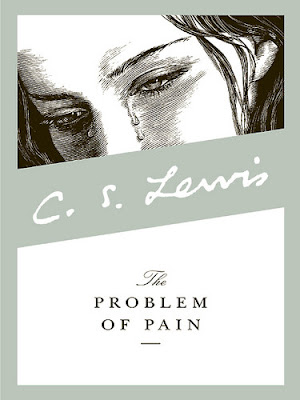 I've read about 1/3 of D. A. Carson's How Long, O Lord?: Reflections on Suffering and Evil this week. So far, it is proving to be a wise and carefully nuanced treatment of the problems of sin, suffering, and evil in the world. Especially helpful was the chapter on "The Suffering God."
I've read about 1/3 of D. A. Carson's How Long, O Lord?: Reflections on Suffering and Evil this week. So far, it is proving to be a wise and carefully nuanced treatment of the problems of sin, suffering, and evil in the world. Especially helpful was the chapter on "The Suffering God." Carson writes,
When Christians think seriously about evil and suffering, one of the paramount reasons we are so sure that God is to be trusted is because he sent his Son to suffer cruelly on our behalf. Jesus Christ, the Son who is to be worshiped as God, God’s own agent in creation (John 1:2-3), suffered an excruciatingly odious and ignominious death. The God on whom we rely knows what suffering is all about, not merely in the way that God knows everything, but by experience.
Also on suffering . . . I revisited some of my highlighted sections in C. S. Lewis's The Problem of Pain . One passage that stood out (again) was this one:
 Suffering is not good in itself . . . In the fallen and partially redeemed universe we may distinguish between (1) the simple good descending from God, (2) the simple evil produced by rebellious creatures, and (3) the exploitation of that evil by God for His redemptive purpose, which produces (4) the complex good to which accepted suffering and repented sin contribute.
Suffering is not good in itself . . . In the fallen and partially redeemed universe we may distinguish between (1) the simple good descending from God, (2) the simple evil produced by rebellious creatures, and (3) the exploitation of that evil by God for His redemptive purpose, which produces (4) the complex good to which accepted suffering and repented sin contribute.I think this is a properly nuanced way of talking about how God "uses" evil for good upon which most Arminians (as was Lewis) and Calvinists could agree.
Yesterday afternoon and evening I pulled away from everything to read Richard B. Gaffin's Resurrection and Redemption: A Study in Paul's Soteriology . This is a difficult book, but worth ploughing through. Gaffin's main thesis is that many Reformed treatments of soteriology have not given sufficient attention to Paul's emphasis on the resurrection of Christ. Here's one key conclusion:
Not justification by faith but union with the resurrected Christ by faith (of which union, to be sure, the justifying aspect stands out perhaps most prominently) is the central motif of Paul's applied soteriology.
The benefit of this thoughtful book is its careful exegesis of a lot of Pauline texts. I found it very helpful.

2 comments:
Check out this new reformed site: www.gracegate.org
Email me and give me some feedback about what you think.
Thanks!
I also read Carson's book a couple of years ago. I enjoyed it too, but realized during and after reading it that ultimately the whole question is veiled in mystery. I guess I was disappointed in a way that Carson didn't give a complete "answer" to the problem of suffering! But that was not, of course, his fault!
Post a Comment